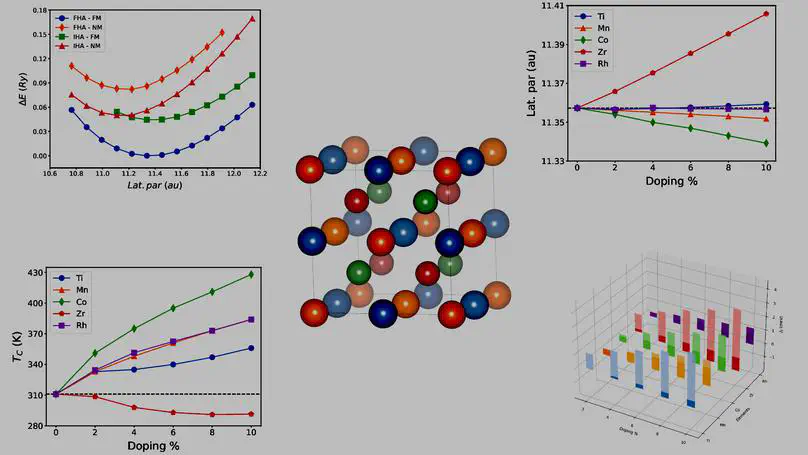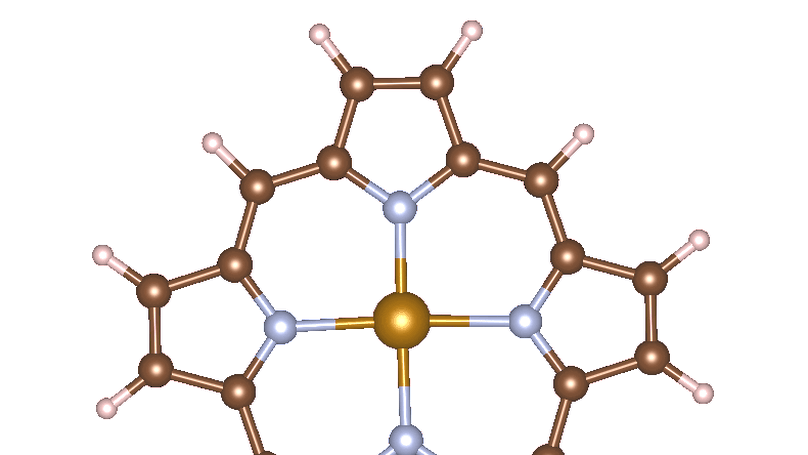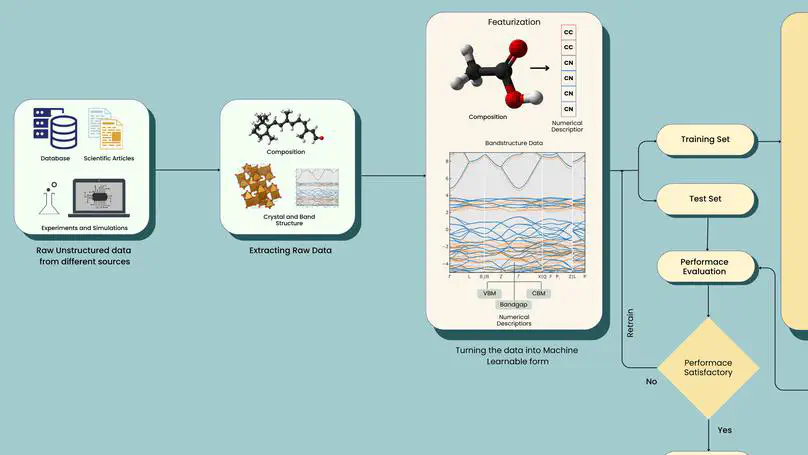Research

At MAVENs, we harness first-principles modelling, Monte Carlo simulations, and machine learning to predict material properties from electronic structure, advancing the design of next-generation materials for energy, magnetism, and quantum applications.
Our Research Philosophy
Our research is driven by a commitment to predictive insight rather than trial-and-error experimentation. We focus on linking atomic-scale structure to macroscopic properties, enabling us to:
- Design materials with targeted capabilities before synthesis
- Reveal fundamental mechanisms behind complex behaviour in alloys, 2D materials, and defect systems
- Translate computational predictions into experimentally actionable outcomes
From the catalytic activity of doped MXenes and quantum spin textures of disordered Heusler alloys to interpretable machine learning for defect-based qubit design, our work addresses the question: “How can we computationally design materials that solve pressing energy and quantum challenges?”
Computational Methods & Tools
We use a suite of computational approaches as enablers to answer scientific questions, applying these methods across multiple length scales to bridge atomic-level structure with macroscopic properties:
- Density Functional Theory (DFT): Accurately computes electronic, magnetic, and structural properties for alloys, 2D materials, and molecular systems
- Monte Carlo Simulations: Explores thermodynamic and configurational landscapes in disordered and multi-component systems
- Machine Learning: Accelerates discovery of functional materials and defects with interpretable, physics-informed models
- High-throughput Computing: Enables systematic screening of candidate materials
These tools are applied in service of our research themes, ensuring that predictions are physically grounded, scientifically robust, and experimentally relevant.
Research Impact
Our computational insights drive materials innovation by:
- Reducing experimental trial-and-error through predictive screening
- Predicting novel materials prior to synthesis, guiding targeted experiments
- Revealing fundamental mechanisms behind disorder, quantum coherence, and catalytic activity
- Accelerating translation from discovery to functional technologies in energy storage, spintronics, and quantum computing
This approach contributes directly to global efforts in clean energy, quantum technologies, and advanced manufacturing.
Collaborative Research
We actively collaborate with experimental groups at SRM Institute and external groups, including Dr. Ashutosh Kumar Singh, CeNS (quantum materials) and Dr. Pralay K. Santra, CeNS (2D systems). These collaborations ensure that computational predictions are validated through synthesis, characterization, and device testing, enhancing the impact, credibility, and practical relevance of our work.
By integrating theory with experiment, we translate predictions into applications spanning sustainable energy conversion, spintronic devices, and quantum information platforms.
Research Themes
Our research spans three interconnected themes, each addressing a specific scientific challenge. Click each title to explore the detailed below, integrating ab-initio modelling, statistical mechanics and data-driven approach:


